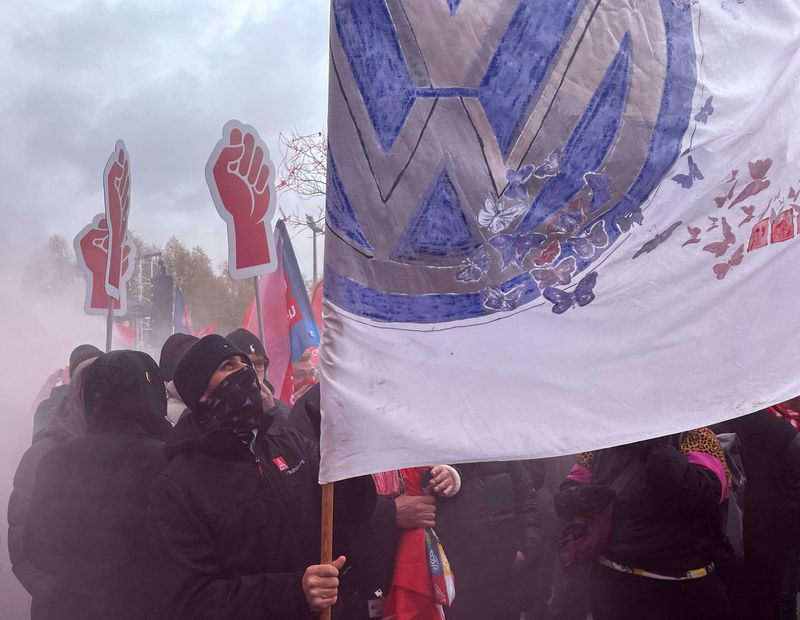By Miranda Murray and Thomas Seythal
BERLIN (Reuters) -Labour representatives on Friday voted for limited strikes at Volkswagen (ETR:VOWG_p)'s German operations from early December, their union said, after talks over wages and plant closures failed to achieve a breakthrough.
Friday's vote marks a further escalation between Europe's top carmaker and its workers over mass layoffs, pay cuts and possible plant closures, drastic measures the company cannot rule out in the face of Chinese competition and cooling demand.
The bargaining committee at VW AG - a German subsidiary of Europe's biggest automaker - voted unanimously for the labour action, the IG Metall union said, adding this would lead to a dispute that will "put the company under massive pressure".
The announcement did not specify when strikes would start, only saying that an agreement that prevents walkouts would expire Nov. 30, making strikes possible from the following day.
Volkswagen was not immediately available for comment.
IG Metall negotiator Thorsten Groeger said workers' representatives had presented comprehensive proposals to the company, adding it was up to Volkswagen how long and severe the dispute would be.
"The company is prepared to negotiate on this basis, but is still keeping open the possibility of plant closures and mass redundancies," he said.
"This is now leading to the threat of a labour dispute the intensity of which the country has not seen for a long time."
Volkswagen has demanded a 10% wage cut for German workers at VW AG, arguing it needs to slash costs and boost profit to defend market share in the face of cheap competition from China and a drop in European car demand.
It is also threatening to close plants in Germany for the first time in its 87-year history. Unions said that the shutdown of three plants was part of each restructuring scenario Volkswagen has presented during the talks.
Walkouts in December would be the first large-scale strikes at VW AG since 2018 when over 50,000 workers took to the streets over pay.

Strikes would initially be so-called warning strikes lasting hours. Union members could then vote to escalate to 24-hour strikes or longer.
Talks are scheduled to continue on Dec. 9.